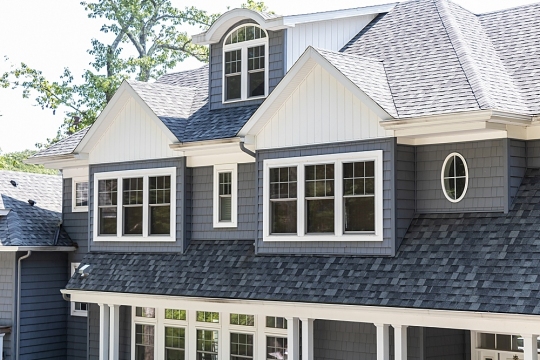First-Time Home Buyer Tips: A Guide
Buying your first home is an exciting and monumental step in your life. At VIV Capital, we understand the challenges and opportunities that come with this significant decision. Whether you’re just starting to explore how to buy a house or are ready to make a purchase, this comprehensive guide is here to help you navigate the process smoothly.
Based in Columbus, Ohio, VIV Capital is committed to providing you with the insights and support you need to make informed decisions.
1. Assess Your Financial Health
Understanding your financial health is the first step in the home-buying process. A clear picture of your finances will help you determine how much house you can afford and secure the best mortgage terms.
- Review Your Credit Score: Your credit score is a critical factor in the mortgage approval process. Lenders use it to assess your creditworthiness. Obtain your credit report from the major credit bureaus (Experian, Equifax, and TransUnion) and check for errors
Aim for a credit score of at least 620 for conventional loans, although higher scores can qualify you for better interest rates and terms. If your score is lower, take steps to improve it by paying down debt and avoiding new credit inquiries. This step is crucial for first-time home buyers. - Calculate Your Debt-to-Income Ratio (DTI): Lenders evaluate your DTI to ensure you can manage your monthly mortgage payments. Calculate your DTI by dividing your total monthly debt payments by your gross monthly income.
A DTI below 36% is ideal, but some lenders may accept higher ratios. Lowering your DTI by paying off debt or increasing your income can improve your mortgage prospects. Understanding these steps to buying a house can make the process smoother. - Build a Budget: Determine how much house you can afford by creating a detailed budget. Include all sources of income and itemize your monthly expenses, such as rent, utilities, groceries, and entertainment.
Use online mortgage calculators to estimate your monthly payments based on different loan amounts, interest rates, and down payment sizes. Remember to account for additional costs like property taxes, homeowners insurance, and maintenance. Knowing how to buy a home involves thorough financial planning.
2. Save for a Down Payment
Saving for a down payment is a crucial part of the home buying process. The amount you need depends on the type of loan and the home’s purchase price.
- Aim for 20%: A 20% down payment is often recommended because it helps you avoid private mortgage insurance (PMI), which protects the lender if you default on the loan. However, many first-time home buyers find it challenging to save this amount. Fortunately, several loan programs, such as FHA loans, require as little as 3.5% down.
While these programs make homeownership more accessible, keep in mind that smaller down payments typically result in higher monthly payments and additional costs like PMI. This is one of the essential tips for first-time home buyers. - Consider Down Payment Assistance Programs: Numerous down payment assistance programs are available at the federal, state, and local levels to help first-time buyers. These programs offer grants, loans, and other financial assistance to reduce the burden of a down payment.
In Ohio, for example, the Ohio Housing Finance Agency (OHFA) provides down payment assistance programs for eligible buyers. Research and apply for these programs early to maximize your financial support.
3. Get Pre-Approved for a Mortgage
Getting pre-approved for a mortgage gives you a clear picture of how much you can borrow and shows sellers that you are a serious buyer. This is a critical step in the process of buying a house.
- Shop Around for Lenders: Mortgage rates and terms can vary significantly between lenders. Compare offers from banks, credit unions, and online lenders to find the best deal. Look at the interest rates, loan terms, fees, and customer reviews.
A lower interest rate can save you thousands of dollars over the life of the loan. This is an essential step in how to buy a house for the first time. - Gather Necessary Documents: To get pre-approved, you’ll need to provide financial documentation, including tax returns, pay stubs, bank statements, and identification.
Having these documents ready can speed up the process and show lenders that you are organized and prepared. Understanding these steps to buy a house can make your journey smoother.
4. Define Your Needs and Wants

Defining your needs and wants helps you focus your home search and avoid feeling overwhelmed by the many options available.
- Make a List: Start by making a list of features you need in a home and those you’d like to have. Needs are non-negotiable aspects, such as the number of bedrooms, bathrooms, and a certain location.
Wants are features that are desirable but not essential, like a swimming pool, a large yard, or a modern kitchen. Being clear about your priorities will help you stay focused during your search. This is a crucial step in buying a house for the first time. - Prioritize: Rank your list to distinguish between essential features and those that can be compromised. Consider your lifestyle and long-term plans. For example, if you plan to grow your family, you might prioritize additional bedrooms and a larger living space.
If you work from home, a dedicated office space might be high on your list. This is one of the key steps in buying a house for the first-time buyers.
5. Research Neighborhoods
Researching neighborhoods is essential to find a location that meets your lifestyle needs and preferences.
- Consider Columbus, Ohio: Columbus offers a diverse range of neighborhoods, each with its own unique character and amenities. From the bustling downtown area to the quieter suburbs, there’s something for everyone.
Consider factors such as proximity to work, schools, shopping centers, parks, and public transportation. Use online resources, such as neighborhood guides and crime maps, to gather information. Understanding the local market is essential in the steps to buying a home. - Visit Potential Areas: Spend time in the neighborhoods you’re considering. Visit during different times of the day and week to get a sense of the community. Talk to residents and ask about their experiences living in the area.
Drive or walk around to see the condition of the homes and streets. Look for signs of community involvement, such as well-maintained parks and public spaces. This step is crucial in the process of buying a house.
6. Hire a Real Estate Agent
A knowledgeable real estate agent can be an invaluable resource in your home search.
- Find an Experienced Agent: Look for an agent with experience in the Columbus market and a good track record with first-time buyers. Ask for recommendations from friends, family, or colleagues.
Interview several agents to find one who understands your needs and communicates effectively. This is one of the essential real estate tips for first-time buyers. - Ask Questions: Ensure your agent understands your budget, timeline, and priorities. Ask about their strategy for finding homes that meet your criteria and their approach to negotiations.
A good agent will listen to your concerns, provide valuable insights, and guide you through the process. Knowing how to buy your first home involves finding the right support.
7. Start House Hunting
House hunting is one of the most exciting parts of buying your first home. With a clear understanding of your needs and wants, you’re ready to explore the market.
- Use Online Resources: Start your search online using real estate websites like Zillow, Realtor.com, and local listings. These platforms offer filters to narrow down your search based on your criteria, such as price range, location, and home features.
Set up alerts to be notified when new listings that match your criteria are posted. This is a key step in the home buying process. - Attend Open Houses: Open houses provide an opportunity to see multiple homes in a short period. Take notes and photos during your visits to help you remember the details of each property.
Pay attention to the home’s layout, condition, and potential maintenance issues. Don’t be afraid to ask the listing agent questions about the property, the neighborhood, and the seller’s motivations. These steps in buying a house for the first time are crucial.
8. Make an Offer

Making an offer on a home involves negotiation and strategy. It’s crucial to work with your real estate agent to ensure your offer is competitive.
- Negotiate Wisely: Your agent will help you determine a fair offer price based on comparable home sales, the home’s condition, and current market conditions. Be prepared for counteroffers and negotiations.
Stay within your budget and avoid getting emotionally attached to any single property. There are always other homes available if the negotiations don’t work out. This step is critical in the process of buying a house. - Include Contingencies: Protect yourself by including contingencies in your offer. Common contingencies include financing, inspection, and appraisal contingencies.
These clauses allow you to back out of the deal or renegotiate if certain conditions are not met, such as the home failing inspection or the appraisal coming in lower than the purchase price. This is an important tip for buying a house for the first time.
9. Conduct Inspections and Appraisals
Once your offer is accepted, it’s time to conduct inspections and appraisals to ensure the home is in good condition and worth the price.
- Hire a Home Inspector: A home inspection is crucial to identify any potential issues with the property. Hire a certified home inspector to thoroughly examine the home, including its structure, electrical systems, plumbing, roof, and foundation.
The inspector will provide a detailed report of their findings. Use this report to negotiate repairs or a price reduction with the seller. This step is essential in the steps to buying a house. - Get an Appraisal: Your lender will require an appraisal to ensure the home’s value matches the loan amount. The appraisal protects the lender by ensuring they are not lending more than the home’s worth.
If the appraisal comes in lower than the purchase price, you may need to renegotiate the price or cover the difference out of pocket. This is a key step in how to buy a house for the first time.
10. Secure Your Financing
Securing your financing is a critical step in the home-buying process. It involves finalizing your mortgage and locking in your interest rate.
- Lock in Your Interest Rate: Interest rates can fluctuate, so it’s essential to lock in your rate as soon as possible to avoid increases. Discuss the best time to lock in your rate with your lender.
Some lenders offer a rate lock for a specific period, such as 30 or 60 days, which should cover the time until closing. This is an important step in the steps to buying a house. - Complete the Paperwork: Be prepared to review and sign a significant amount of paperwork, including the loan estimate, closing disclosure, and other required documents. The loan estimate outlines the terms of your mortgage, including the interest rate, monthly payment, and closing costs.
The closing disclosure provides a detailed breakdown of all costs associated with the transaction. Review these documents carefully and ask your lender or real estate agent to explain anything you don’t understand. Understanding these steps to buy a house is crucial for first-time home buyers.
11. Prepare for Closing
Preparing for closing involves coordinating with all parties involved and ensuring all details are in place for a smooth transaction.
- Schedule the Closing Date: Work with your lender, real estate agent, and seller to set a closing date. Make sure all necessary parties are available on that date. The closing date is typically set 30 to 45 days after your offer is accepted, allowing time for inspections, appraisals, and finalizing your loan. This step is essential in the steps of buying a house.
- Review the Closing Documents: A few days before closing, you’ll receive the closing disclosure. Review this document carefully to ensure all terms and costs are as expected. Compare it to the loan estimate to check for any discrepancies.
Contact your lender or real estate agent immediately if you have any questions or concerns. Knowing how to buy a house involves careful review of all documents.
12. Final Walkthrough
The final walkthrough is your last chance to inspect the property before closing.
- Inspect the Property: Conduct a final walkthrough a day or two before closing to ensure the home is in the agreed-upon condition. Check that all agreed-upon repairs have been made and that no new issues have arisen.
Test appliances, lights, and plumbing to ensure everything is in working order. This step is critical in buying a house for the first time. - Verify Repairs: Use your inspection report and the seller’s repair list to verify that all requested repairs have been completed. If you find any issues during the walkthrough, discuss them with your real estate agent and the seller to resolve them before closing. This is an essential tip for buying a house.
13. Plan Your Move
Planning your move efficiently can help reduce stress and ensure a smooth transition to your new home.
- Hire Movers or Rent a Truck: Decide whether to hire professional movers or rent a truck for a DIY move. If you choose professional movers, research and book them well in advance to ensure availability.
Get quotes from multiple companies and read reviews to find a reliable mover. If you prefer to move yourself, rent a truck and enlist the help of friends or family. Be sure to have all the necessary packing supplies, such as boxes, tape, and bubble wrap. This step is crucial in buying your first home. - Update Your Address: Notify the post office of your new address to forward your mail. Update your address with important contacts, such as banks, credit card companies, insurance providers, and subscription services.
Don’t forget to change your address on your driver’s license and voter registration. Knowing how to buy a house includes planning for your move.
14. Settle Into Your New Home
Once you’ve moved in, take the time to settle into your new home and make it your own.
- Unpack Efficiently: Start by unpacking essential items first, such as kitchen supplies, toiletries, and bedding. Set up your bedroom and kitchen before tackling less critical areas. Take your time to organize your belongings and find the best places for everything.
Unpacking gradually can help you avoid feeling overwhelmed. This step is essential in buying a house for the first time. - Meet Your Neighbors: Introduce yourself to your new neighbors. Building relationships in your community can help you feel more at home and provide a support network. Attend neighborhood events and join local social media groups to get involved and stay informed about community activities. Knowing how to buy a home includes integrating into your new community.
Buying your first home is a journey filled with excitement and challenges. By following these tips and leveraging the expertise of VIV Capital, you can navigate the process with confidence. Remember, our team is here to support you every step of the way. For more information and personalized assistance, visit our blog.














